Staff Inquiry: Films That Took A Second Viewing To Appreciate

Alex is a film addict, TV aficionado, and book lover.…
We all go into films wanting to enjoy them. There’s that flutter of hope when a movie starts that maybe this will be an all-timer, or at least a good time, only to occasionally have that hope dashed by subpar, uninteresting material. But we here at Film Inquiry are professionals, right? We always digest films fully the first time, and our opinions never change.
Woe be it to anyone who thinks so highly of themselves, and luckily our staff knows that great movies sometimes just don’t click with us on the first go. So this month our writers are looking at the films they didn’t appreciate on the first watch but have come to hold in high regard.
Juliana Antonio – Raise the Red Lantern (1991)
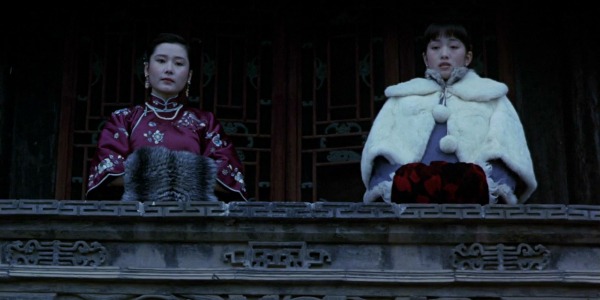
While Raise the Red Lantern may seem like a slow documentary on concubines in the 1920s, one may not realize the contemporary issues covered. When I first watched the film, I was fascinated by the drama to a superficial extent. The way Songlian, Meishan, and Zhuoyan fought over such petty things seemed entertaining at first, but upon viewing it a second time, I realized there was so much more to their quarrels than I thought.
The film touches upon gender inequality, something we can expect of 1920s China. However, Zhuoyan’s distaste for her daughter because of her gender portrays the intensity of such ideologies during this time.
Moreover, the “solution” to Meishan’s disloyalty also provides insight on the disposable nature of women at this time. It is only Songlian who reacts negatively, and it is worth noting that she is the only educated character in this film. While the other characters commend her for her experience at university, it is evident that this is not the norm within their society, as women were merely viewed as forms of entertainment and family “makers”. With this, the film touches upon the negative attitude towards educated women, eventually elucidating Songlian’s descent into madness as she realizes that she despises the world in which she lives.
Upon viewing the film for the second time, I came to commend Songlian for her strength and wit as well as her overall character, demonstrating that she was years ahead of her society. The issues touched upon in this film portray the cultural context in which it was made, thus allowing viewers to connect to the film and resonate with it, as the issues seem to have transcended time, even into our own century.
Jo Bradley – Hugo (2011)

I remember first watching Hugo when I was younger and being confused, underwhelmed, and frankly a bit bored. What was marketed as an exciting adventure story for kids ended up being a quite lengthy film about the life of a mysterious old man. Twelve-year old me was not impressed.
It wasn’t until my final years of school that I became more interested in film. I learnt all about the origins of cinema, from the Lumière brothers, to the first ever short films, to Georges Méliès and his world famous Le voyage dans la lune (A Trip to the Moon).
Then back in 2016, by chance, I revisited Hugo. Fresh from high school and with a new appreciation for cinema, I was entranced by the stunning visuals. The production design, cinematography, and special effects seamlessly combine to create one of the most aesthetically pleasing films I’ve ever seen.
Upon the rewatch, I discovered that the storyline about the mysterious old man, that bored me as a child, was actually the story about the life and career of Georges Méliès. Méliès, the trailblazing French filmmaker known to be one of the most significant figures in the origin of cinema, is brought to life with grandeur and severity by Sir Ben Kingsley. Kingsley, who is brilliant here, is just one part of a talented cast which includes Asa Butterfield, Chloë Grace Moretz, Sacha Baron Cohen, Emily Mortimer, and Jude Law.
While this ode to the magic of storytelling may be marketed to kids, it is likely that its most ardent supporters will come from movie lovers and historians alike. Under Martin Scorsese’s direction, this film manages to be both a fascinating historical drama and a moving tale of friendship and discovery.
Zoe Crombie – Spirited Away (2001)
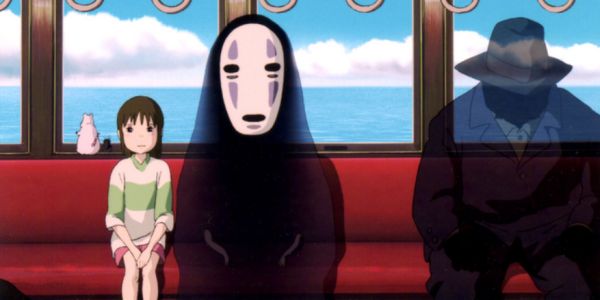
I first watched Hayao Miyazaki’s iconic Spirited Away when I was seven years old and waiting for my dad to pick me up from an after-school club. A twenty-something helper with a pop punk vibe that I found irrevocably cool at the time brought in the DVD to keep us entertained for a couple hours and likely to get a reaction out of us. Which, to be fair, it did.
During the original viewing, I was sat on a well-worn carpet surrounded by younger children who were very vocally baffled by the bizarre occurrences on screen. I was amongst them, finding myself frustrated by the lack of straightforward cause and effect progression, clear character intentions, and a good guy/bad guy dichotomy. But the element that most disturbed me was the image of protagonist Chihiro watching in horror and disgust as her parents transform before her into enormous pigs; never had an animation simultaneously challenged and compelled me to this extent.
After only lasting twenty minutes with Spirited Away before likely getting distracted by Crash Bandicoot or something similar, I didn’t give the film another chance until late into my teens. This time, the scenario was aspiring film student me sticking it on with some arty friends after drinking cheap wine. And having at this point watched movies like Eraserhead and Un Chien Andalou, I was more than willing to watch Miyazaki’s work again, having developed a taste for surreal imagery and more complex themes.
This time, I watched the whole film from beginning to end, enchanted and warmed by it. The seeming lack of logic no longer bothered me in the slightest, and the overriding themes of compassion and maturity hit home, in part because my experience watching the film felt similar to Chihiro’s emotional journey in the bathhouse. I began disgruntled, waiting on my parents and horrified by the world around me, but finished as someone more willing to give the unfamiliar a chance. For that and many other reasons, it is now one of my favourite movies.
Kevin Lee – Inception (2010)
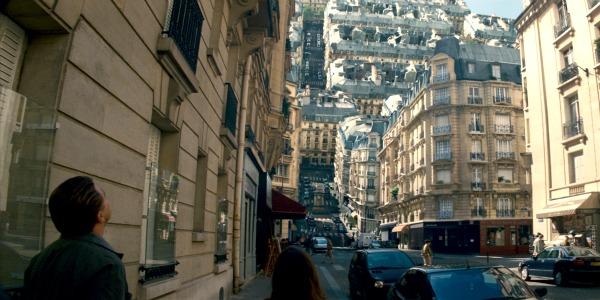
I remember seeing Inception on opening night, hearing from colleagues about how it surpasses The Dark Knight in terms of quality. Maybe that’s what happened: my expectations were set way too high. In my first viewing, I did not find the dream idea original. My literal first reaction to the characters getting plugged into the dream was, “Oh, so they plug into the Matrix, but now it has levels.” The first half of the film rubbed me the wrong way as well, when it spends most of its run time explaining its “rules” to the audience, as if the script is constantly afraid they can’t keep up. At the end of the day, Inception is still a heist movie, and it should never forget about its heist.
It took me one to two more viewings at home, where I finally decided to look past its premise and admire the technical and cultural achievement Nolan had made. It features some of Hans Zimmer’s best work in his discography, and the visual effects all serve its universe. It also has an admirable performance by Leonardo DiCaprio and it tries to have some sort of emotional weight in the story – whether or not it completely succeeded is another topic. Lastly, Inception features some of the best editing in any blockbuster.
Despite not liking the film the first time, I conclude today that Inception is one of if not the most influential blockbuster in the 2010s. It may not be a perfect film, but it was a large stepping stone towards mainstream films that blend entertainment with cerebral content.
Nathan Osborne – Drive (2011)

My first experience with Nicolas Winding Refn’s Drive was something of a fluke, with my disappointment based entirely off of my expectations going into the film. When I was beginning to develop my film catalogue and taking more of an interest in non-Disney releases, I would raid Tesco’s £3 DVD section for all their new discounted additions. Stumbling upon what I assumed to be (based only on the title) an action-thriller, I ultimately wound up frustrated that I was instead delivered a much slower, hyper-stylised, character-driven piece. It wasn’t what I was looking for, and I felt somewhat cheated as a result.
Fast forward roughly four years and, hoping my opinion had evolved considerably along with my tastes, I threw myself back in with an open mind.
To my relief, it was like watching a new film. I came to appreciate the expert blend of violent imagery, music, and character work, welcoming the arthouse action piece with open arms. My increased fondness of Ryan Gosling helped no doubt, recognizing the great skill he infused into the challenging role of Driver, along with terrific supporting performances from Carey Mulligan and Bryan Cranston.
Refn’s directorial style can be alienating, so it is easy to see why people don’t warm to his films. But having loved The Neon Demon, I had come to value the bold, uncompromising filmmaking techniques and vision he brought to his films, and Drive followed suit. With a fantastic score to boot, as well as the stunning sound editing and mixing on display, Drive ended up overtaking my initial dislike and sped away with my admiration.
Linsey Satterthwaite – Deadpool (2016)
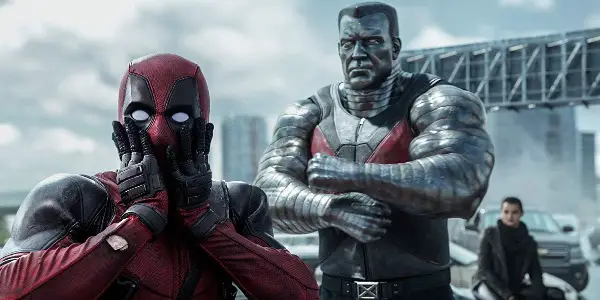
By the time I watched Deadpool for the first time at the cinema, I felt like it had reached saturation point from an advertising campaign that was overly wink-wink, nudge-nudge, and ‘look at me, I’m so big and cleverly irreverent’. So, when I watched the film I felt it was too self-aware, too knowing, and to be honest, a bit up its own tightly costumed arse. I came away from it underwhelmed and strangely annoyed.
But when Deadpool appeared again on my small screen, I decided to give it another hit. I realised it was too self-aware, too knowing, and it was up its own tightly costumed arse, but that was the beauty and fun of it all. In a time when superhero films had become congested with bloated running times and formulaic plots, Deadpool was sending them up and calling them out for their narrative inconsistencies and muddled universe.
It was what the MCU needed, a breath of fresh air into the genre, and it offered something that found the humour button in a world that had scope and material to be poked fun at. You could both enjoy the spectacle and bombastic nature of superhero films but also enjoy them being sent up. And we should also appreciate that we got to witness Ryan Reynolds having the time of his life and going full throttle potty mouth in a role he was clearly itching and destined for.
Since Deadpool we have had another entry to the genre with Taika Waititi’s gloriously entertaining and comedic Thor: Ragnorok, but we should thank Deadpool for paving the way for the MCU to take that risk and to give us another side to the superhero arsenal.
Jake Tropila – On Her Majesty’s Secret Service (1969)
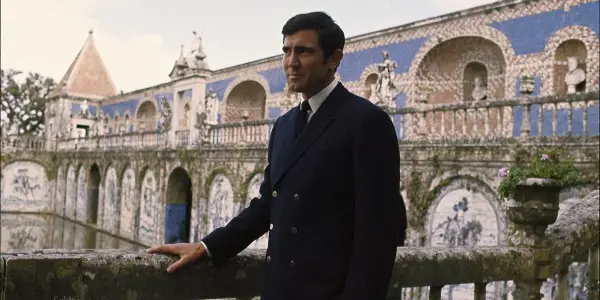
The first time I watched On Her Majesty’s Secret Service (the sixth James Bond film and the first to star someone other than Sean Connery), it was sometime in 2009. My initial reaction was more puzzled than anything else. Here was a film that had been recently rediscovered and heralded by franchise fans as a secret masterpiece, joining the ranks of Goldfinger and Casino Royale as one of the best of the lot.
Frankly, I didn’t buy it. My complaints against Secret Service were typical nagging points from naysayers: the film was overlong, the plot was incredibly bizarre (as far as Bond films go, anyways), and George Lazenby was hopelessly wooden in the lead role. I’d all but written off its resurgence as a fluke.
I didn’t revisit Secret Service until two years later, when I did an official run-through of the entire series in chronological order. Oh, what a relief it was to have been wrong! The mastery of Secret Service really spoke to me on my second go-round. I found it to be the most stunningly crafted, thrilling executed, and emotionally satisfying of the lot.
Ask me today, and I consider Secret Service to be the finest Bond film ever made. The plot is exciting, moving along at a slick, deliberate pace that offers genuine spy intrigue (having read all of Ian Fleming’s novels, it’s also arguably the most faithful). The action is stylish, lushly shot, and beautifully choreographed (in terms of visual design, this is rivaled only by Skyfall as series best). And Lazenby? I think he’s wonderful, playing Bond as a human and offering a real emotional epicenter in the film’s shocking climax. Truly spectacular work all around.
Benjamin Wang – Foolish Wives (1922)
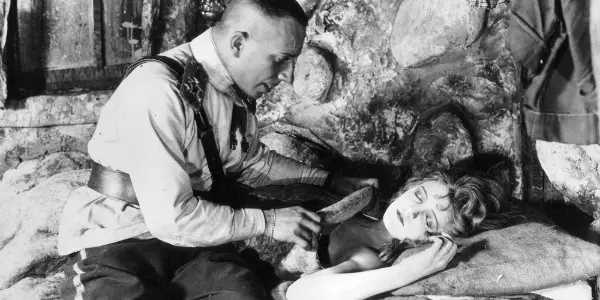
Erich von Stroheim once said: “Lubitsch shows you first the king on the throne, then as he is in the bedroom. I show you the king in the bedroom so you know just what he is when you see him on the throne.” The order in which we see things affects the impression they leave on us, and Stroheim never intends to let something leave an illegitimate good impression, not even if it’s undercut later.
Foolish Wives, one of Stroheim’s masterpieces, has a setting with many lavish tourist attractions and displays of aristocratic wealth. The point, of course, is that it all hides and facilitates the cruelty of people like the film’s main character, Count Wladislaw Sergius Karamzin (played by Stroheim himself).
It took me a second viewing to appreciate Foolish Wives because it takes a knowledge of the film as a whole to understand it. Again, the order in which we see things makes a difference. The characters reveal things about locations and locations reveal things about characters, and the film keeps building on itself with new information; it can be hard to keep track of on a first viewing. There’s also the fact that the film was originally meant to be over six hours long but now runs just over two. The loss of so much material may have rendered some its effects subtler.
Production troubles like these plagued Stroheim throughout his career. He called the final cut of Foolish Wives a “skeleton of a dead child.” Nevertheless, his films held up marvelously. His most famous film, 1924’s Greed, lost over 5 hours of footage but was considered by Orson Welles to be one of the greatest films of all time. For me, there’s no question that Foolish Wives was worth two viewings.
Andrew Winter – Phantom Thread (2017)
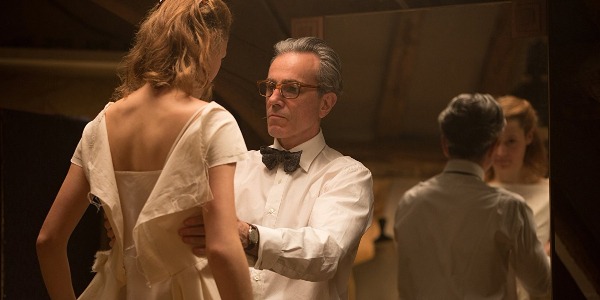
It was Guillermo del Toro who said, “Watching a movie for the first time is a flirt. Rewatching it is a date.” It’s a sentiment that perfectly sums up my experience with Phantom Thread, a film I only came to truly appreciate the second time around.
There’s an awful lot going on in Paul Thomas Anderson’s rich, dense tale, and a good chunk of it isn’t immediately obvious on the first viewing. At heart, the film is a love story involving fastidious, set in his ways Reynolds Woodc*ck (Daniel Day-Lewis), the wealthy owner of a fashion house in ’50s London, and his latest muse, Alma (Vicky Krieps).
Theirs is a dynamic we’ve seen before – free-spirited young woman brings chaos to the life of a stuffy older lover. But this relationship comes with a sliver of hostility, as the pair battle for the upper hand. Such fractiousness expresses itself as a sort of low-level class war, with Reynolds airily dismissive of Alma’s affections (they even have separate bedrooms), while the former waitress goes to increasingly extreme lengths to bring him to heel.
It’s a situation further complicated by Woodc*ck’s sister, Cyril (Lesley Manville). As well as being his business partner, she’s also Reynolds’ gatekeeper, ensuring Alma is kept at a distance. Some critics and commentators have questioned the exact nature of Cyril’s relationship with her brother, as well as Reynolds’ sexuality in general. Like I said, there’s a lot going on.
I also appreciated the film’s arch humour more on a second viewing. We get that Reynolds is precious, punctilious, and a bit of a twit, but perhaps not that he’s a designer whose couture is well past its sell-by date. The dresses he creates are gaudy and awful, a fact that makes the film’s Best Costume Design Oscar amusingly ironic.
Tynan Yanaga – Citizen Kane (1941)
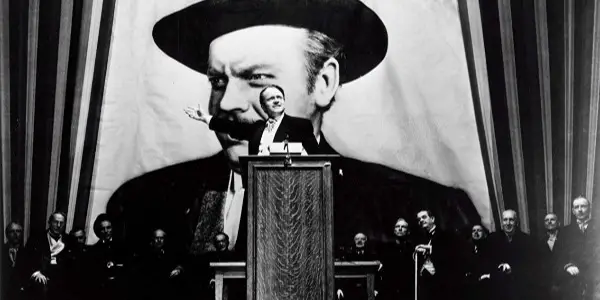
Others might relate, but very rarely do you come across Citizen Kane purely by accident. Many people, like me, came to Orson Welles’ directorial debut because its reputation precedes it. We see Xanadu, the mustachioed face, and the falling snow globe, and we’re daring it to wow us. There’s absolutely no margin for error when you’re known as “The Greatest Film of All Time.”
Because my expectations were exceedingly unrealistic and my own adolescent mind fairly dismissive, my first viewing did not do the picture justice. There’s simply too much to ingest, and that’s what makes it simultaneously one of the finest films for a second, third, fourth viewing, etc.
If we presume to have unlocked all its secrets, our assumptions are upended each and every time by new discoveries. It might be in the script of Herman J. Mankiewicz and Welles, partially inspired by William Randolph Hearst, or in the immaculately evolving score of Bernard Herrmann.
Maybe it’s the way in which Welles used his unprecedented control to craft a film that so audaciously layered sound, shot from varying perspectives, and collapsed time. It provides this continually varied, multifaceted view of Charles Foster Kane. Then, you have the perfected deep focus cinematography of Greg Toland and the nearly absurd camp which goes alongside a tragic figure nearly ripped out of Ecclesiastes. The heights and depths dare to take us in so many different directions.
However, I like Martin Scorsese’s own recollections because he mentions seeing Kane for the first time as a boy, the way I would have liked to, and it was watching the film at that age where he finally made a conscious realization about what a director did. Because there’s no doubting Citizen Kane has the hands of a creator all over it.
These are just some of the films we warmed to on a second viewing. What are some that took multiple viewings for you? Let us know in the comments!
Does content like this matter to you?
Become a Member and support film journalism. Unlock access to all of Film Inquiry`s great articles. Join a community of like-minded readers who are passionate about cinema - get access to our private members Network, give back to independent filmmakers, and more.
Alex is a film addict, TV aficionado, and book lover. He's perfecting his cat dad energy.













